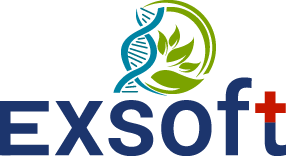
Roche AG, a Swiss multinational healthcare company has recently announced the availability of a next-gen liquid biopsy test, FoundationOne®Liquid. The Swiss company also claims that the liquid biopsy would offer patients suffering with solid tumors a quick and convenient testing option, just by diagnosing a single blood sample.
According to an official press release by Roche AG, the FoundationOne Liquid could effectively identify circulating tumor DNA in the blood of patients suffering from cancer. In addition, the FoundationOne Liquid could also identify 70 types of the most commonly mutated genes in solid tumors, including Microsatellite Instability (MSI), a genomic signature which may help with the decision for undertaking cancer immunotherapy-based treatment.
FoundationOne Liquid meets an urgent need for genomic profiling of people with inadequate or insufficient tissue, including those with advanced non-small cell lung cancer, where approximately 10% patients have a biopsy size that is insufficient to evaluate, and about 15% patients that are not eligible for a tissue biopsy test. FoundationOne Liquid complements the FDA-approved FoundationOne CDx, a clinically validated diagnostic for solid tumors.
Apparently, the blood sample taken from patients is sent to a Foundation Medicine lab where tests are performed using advanced sequencing for analyzing the four main classes of genomic mutation as well as MSI, an indicator that may help take prior decisions for immunotherapy treatments using ctDNA isolated from plasma extracted from peripheral whole blood.
As per Sandra Horning, MD, Roche’s Chief Medical Officer and Head of Global Product Development, cancer is a disease of the genome and genomic profiling of patient’s tumor at an early stage of their treatment will provide transformative outcomes for patients. Roche believes in the use of advanced profiling technologies like FoundationOne Liquid and expects the FoundationOne CDx diagnostics to effectively improve access to targeted cancer treatments for patients and enrich the future development of targeted medicines, Horning added.

